02 Jun2020
By Monika Jo
According to the 2017 Workplace Learning Report, over 50% of learning professionals say that developing strong leaders is the number one objective for their organization. Coaching, communication, and collaboration top the list of skills for leaders, and large organizations report communication skills are more in demand than technical skills. This applies not only to companies’ employees but also for preparing teachers—who need to be adept at having high stakes conversations with their students, peers, administrators and students’ parents and guardians. Now add to that mix a public health crisis that has forced the issue of training while working from home (WFH).
In this white paper ,“Best in Class Leadership Development: How Virtual Reality and Avatars are Changing the Learning Landscape,” you will learn about modern, remote learning experiences that harness today’s technology to affect real behavior change. Backed by research, and no longer novel, simulations and use of avatars to assist learning is playing an increasingly major role in improving human interactions. Here is an outline of the white paper:
02 Jun2020
AACTE Responds to COVID-19
By Jacqueline Rodriguez
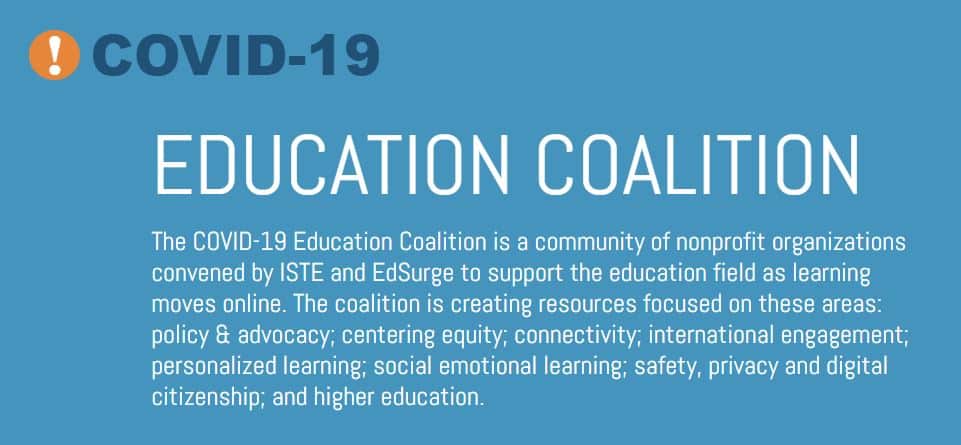 As every educator in the country can attest, effectively leveraging technology in our classrooms, both in the virtual and brick and mortar environment, is paramount. To support our members, earlier this spring AACTE joined more than 70 education organizations in the COVID-19 Education Coalition formed by the International Society of Technology in Education (ISTE). The Coalition’s purpose is curate, create, and deliver high-quality tools and support for educators as they keep the learning going during extended school closures caused by the global pandemic. ISTE and coalition members have launched LearningKeepsGoing.org, a free, online portal with resources for educators and a help desk with experts from across the country to provide real-time support to educators. LearningKeepsGoing.org will also list weekly webinars, offering educators and administrators direct access to national experts.
As every educator in the country can attest, effectively leveraging technology in our classrooms, both in the virtual and brick and mortar environment, is paramount. To support our members, earlier this spring AACTE joined more than 70 education organizations in the COVID-19 Education Coalition formed by the International Society of Technology in Education (ISTE). The Coalition’s purpose is curate, create, and deliver high-quality tools and support for educators as they keep the learning going during extended school closures caused by the global pandemic. ISTE and coalition members have launched LearningKeepsGoing.org, a free, online portal with resources for educators and a help desk with experts from across the country to provide real-time support to educators. LearningKeepsGoing.org will also list weekly webinars, offering educators and administrators direct access to national experts.
As AACTE’s assistant vice president of programs and professional learning, I am co-leading the Higher Education subcommittee of the Coalition with David Sykhuis, assistant dean of the College of Natural and Health Sciences, AACTE Innovation and Technology co-chair, and chair of the National Technology Leadership Summit. Members of the subcommittee include:
01 Jun2020
By JTE Insider
Check out a recent JTE Insider podcast by the Journal of Teacher Education (JTE) editorial team. This blog is available to the public, and AACTE members have free access to the articles in the JTE online archives—just log in with your AACTE profile.
In this edition of JTE Insider, we are joined by Loraine McKay and Heather Manning from Griffith University (Australia). They are the authors of the article entitled “Do I Belong in the Profession? The Cost of Fitting In As a Preservice Teacher With a Passion for Social Justice” The article is published in the September/October 2019 issue of JTE.
Loraine McKay is a senior lecturer at Griffith University. She teaches into the Bachelor of Education program. She is currently first year coordinator in the Bachelor of Education program and professional experience individual case coordinator. McKay’s research interests align strongly with her passion for teaching. She was a classroom teacher for over 20 years in the primary education sector before leaving teaching to complete her doctoral studies. Her current research centers on developing teacher identity, efficacy, and resilience in preservice teachers. Loraine is particularly interested in preparing teachers to work in inclusive classrooms. She uses collage and photo elicitation to explore the affective dimension of teaching and engagement in learning.
01 Jun2020
AACTE DEI Video: A Focus on Gender Equity in Education
By Jerrica Thurman
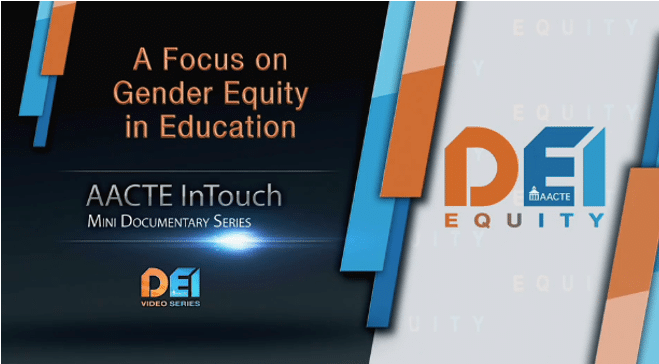
Ed Prep Matters features the “Revolutionizing Education” column to spotlight the many ways AACTE, member institutions, and partners are pioneering leading-edge research, models, strategies and programs that focus on the three core values outlined in the current AACTE strategic plan: Diversity, Equity, and Inclusion; Quality and Impact; and Inquiry and Innovation.
In this segment of the Diversity, Equity and Inclusion video series, AACTE members celebrate differences among individuals and promote gender and sexuality diversity as important aspects in preparing teachers to educate diverse student populations. Education research has found that societal stereotypes and biases of male and female roles are often reinforced in our schools and classrooms. The video participants encourage educators to address gender disparities in curriculum, teaching practices, and student engagement.
28 May2020
By Anna Arias, Brett Criswell, Joshua Ellis, Larry Escalada, Shelly Forsythe, Heather Johnson, Donna Mahar, Amy Palmeri, Margaret Parker and Jessica Riccio
COVID-19 challenges all of us in teacher education to reimagine how to prepare our candidates for the complexity of teaching when they cannot be placed in authentic classroom contexts. Our responses to this challenge will likely require us to stretch the “approximations of practice” that Grossman et al. (2009) described. One strategy that might offer us a means for executing this stretch is video analysis. However, for video analysis to be a meaningful approximation of practice, teacher educators need both useful video case resources and the tools to support candidates’ exploration of these cases.
A group of science teacher educators from across the country has been using the ATLAS library as our main video case resource and the Framework for Analyzing Video in Science Teacher Education (FAVSTE) as our tool for maximizing the learning from these cases. ATLAS has videos (generally 15 -20 minutes in duration) submitted by teachers applying for National Board certification, along with the commentary (Instructional Context, Planning, Analysis, Reflection) associated with the videos. This allows teacher candidates to both see the action occurring in actual classrooms and then read about the thinking of the teacher before and after the lesson that produced that action.
28 May2020
By Paul Floeckher
This article originally appeared on the Kennesaw State University news site and is reprinted with permission.
The Bagwell College of Education’s mixed-reality avatar lab simulates a multitude of situations that teachers can experience, but Kennesaw State faculty probably didn’t envision that one of those scenarios would be providing field experience for teacher candidates during a real-life pandemic.
After universities and PK-12 school systems throughout Georgia transitioned from classroom courses to remote learning last month, the Bagwell College and the Department of Inclusive Education configured the avatar lab for remote access. Unable to be in their actual classrooms, student teachers and master’s candidates have been utilizing the avatar lab online to simulate teaching to a group of students.
“Our teacher candidates are able to take the lesson that they were supposed to teach in the real classroom and do it in our avatar lab, from the comfort of their home,” said Kate Zimmer, an associate professor of special education and the director of the avatar lab. “By no means are we saying that the lab should replace field experience, but, especially in times like these, it definitely makes a difference and helps prepare the best teacher candidates we can.”
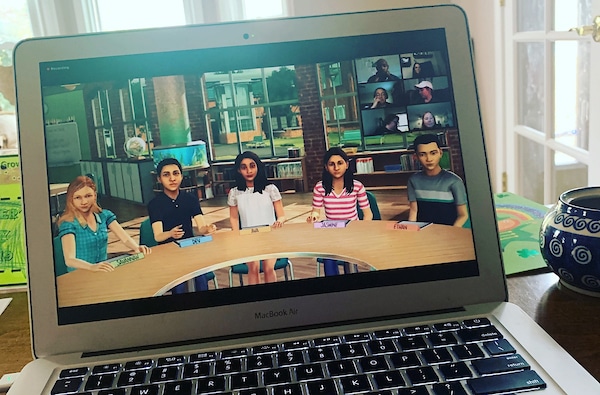
28 May2020
By Deborah Koolbeck

The U.S. Department of Education (Department) released its Notice of Intent to Apply (NIA) for the Teacher Quality Partnership (TQP) Grant Program through the Federal Register. (Please note that the full details of the application are included in the NIA.) For Fiscal Year 2020, the TQP grant program received a $7 million dollar increase from the Congress, raising the program to a $50.1 million funding level. (Thank you to all who advocate with AACTE in support of this program and increasing its funding!)
The TQP program is the only federal initiative dedicated to strengthening and transforming educator preparation at institutions of higher education while meeting the workforce needs of partner high-need schools and school districts. Designed for either undergraduate or graduate programs, teacher candidates will be prepared to teach in high-need fields and serve in high-need schools. For the graduate level TQP programs, grantees develop teacher residency programs. Grantees are required to provide at least 2 years of induction for program graduates and provide professional development to faculty and staff at the schools where the graduates are teaching.
28 May2020
By Leslie T. Fenwick
Sixty-six years have passed since Brown v. Board of Education. The Brown decision came down in 1954; however, in the 16 dual system states, white resistance stalled school desegregation until the late1960s and early1970s. Since Brown, state and federal courts have steadily engaged litigation about education access, school funding, education equity, and opportunity to learn. In recent years, litigation has challenged school reform schemes such as vouchers, charters, the definition of highly qualified teachers, and the practice of disproportionately placing uncertified teachers-in-training as teachers-of-record in schools and classrooms serving urban poor students of color. These schemes—which are often viewed as new and innovative—have old roots in resistance to Brown[1].
Nearly 70 years of litigation about education access, school funding, education equity, and opportunity to learn has yielded two findings: Money matters. And judicial involvement is critical for ensuring that school funding is equitable. In fact, research has shown that court ordered school finance reform tends to increase state spending in lower-income school districts and decrease expenditure gaps between low and high income districts. A National Bureau of Economic Research study (2015)[2] found:
For children from low income families, increasing per-pupil spending yields large improvements in educational attainment, wages, family income, and reductions in the annual incidence of adult poverty. All of these effects are statistically significant … (p.39).
26 May2020
By Katrina Norfleet
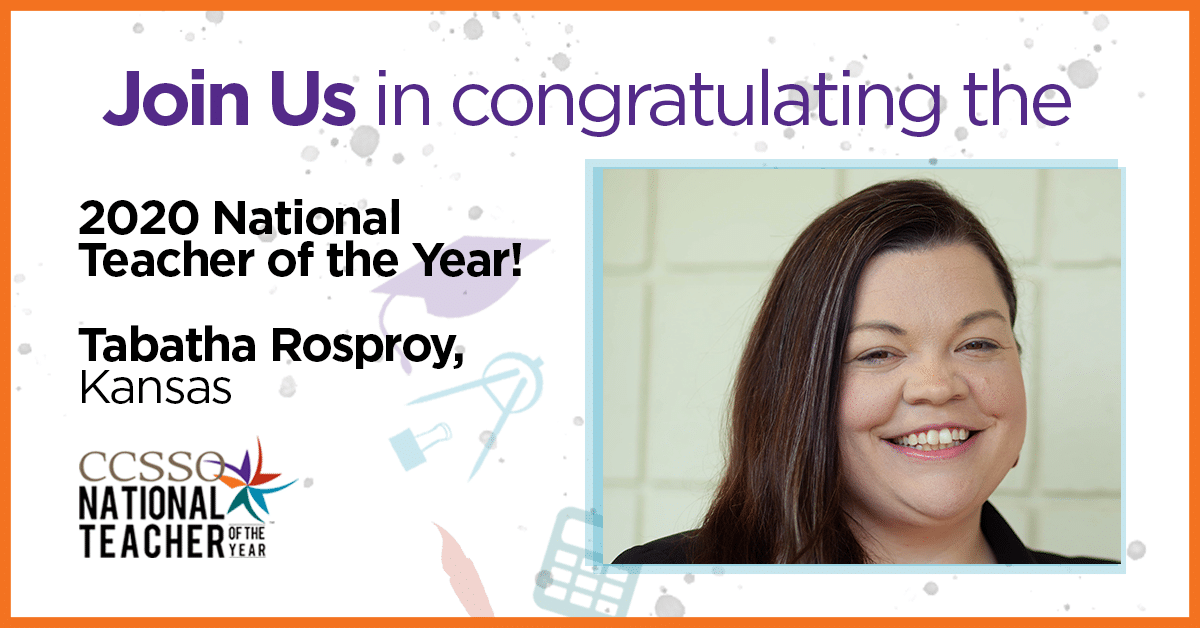 AACTE congratulates 2020 National Teacher of the Year Tabatha Rosproy and AACTE member institution Fort Hays State University for preparing her for a distinguished teaching career. Rosproy, a 10-year veteran Kansas teacher, is the first early childhood educator to be named National Teacher of the Year by the Council of Chief State School Officers (CCSSO).
AACTE congratulates 2020 National Teacher of the Year Tabatha Rosproy and AACTE member institution Fort Hays State University for preparing her for a distinguished teaching career. Rosproy, a 10-year veteran Kansas teacher, is the first early childhood educator to be named National Teacher of the Year by the Council of Chief State School Officers (CCSSO).
Rosproy teaches preschool at Winfield Early Learning Center in Winfield, Kansas, which is housed in a local retirement community and nursing home. Her classroom is an inclusive inter-generational program that provides preschoolers and residents with multiple daily interactions and serves special education and typically developing preschoolers in a full-day setting. As the COVID-19 pandemic forced the closure of school buildings across the country, Rosproy served as a co-chair of the educator task force that helped compile Kansas’s continuous learning guidance.
26 May2020
AACTE Responds to COVID-19
By Ward Cummings
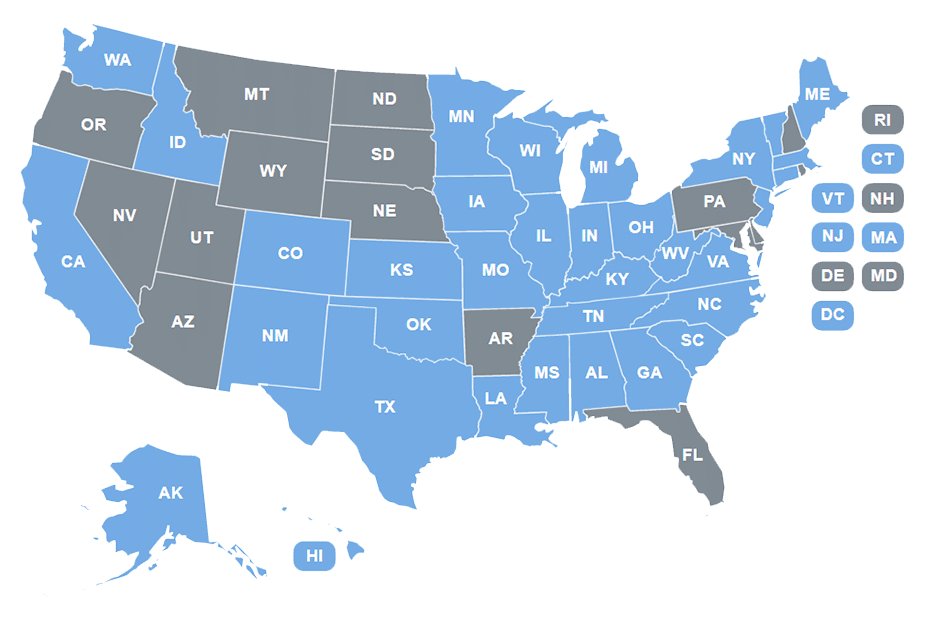 As part of its continued efforts to inform members about the latest developments regarding educator preparation programs (EPPs) in light of COVID-19, AACTE has updated its Policy Tracker Map to reflect recent changes in EPP-specific state guidance and recommendations. These changes include guidance analysis of 12 new states, specifically Arkansas, Delaware, Florida, Maryland, New Hampshire, Rhode Island, Pennsylvania, Arizona, Nevada, South Dakota, North Dakota, and Wyoming. We have also updated data for New Jersey, which recently issued new guidance waiving edTPA.
As part of its continued efforts to inform members about the latest developments regarding educator preparation programs (EPPs) in light of COVID-19, AACTE has updated its Policy Tracker Map to reflect recent changes in EPP-specific state guidance and recommendations. These changes include guidance analysis of 12 new states, specifically Arkansas, Delaware, Florida, Maryland, New Hampshire, Rhode Island, Pennsylvania, Arizona, Nevada, South Dakota, North Dakota, and Wyoming. We have also updated data for New Jersey, which recently issued new guidance waiving edTPA.
In the coming weeks and months, as agency guidance is supplemented by the supporting instructions and recommendations of other state entities, such as the legislature and regulatory bodies, the information and features of this interactive map will grow to accommodate those developments.
26 May2020
By Monika Jo
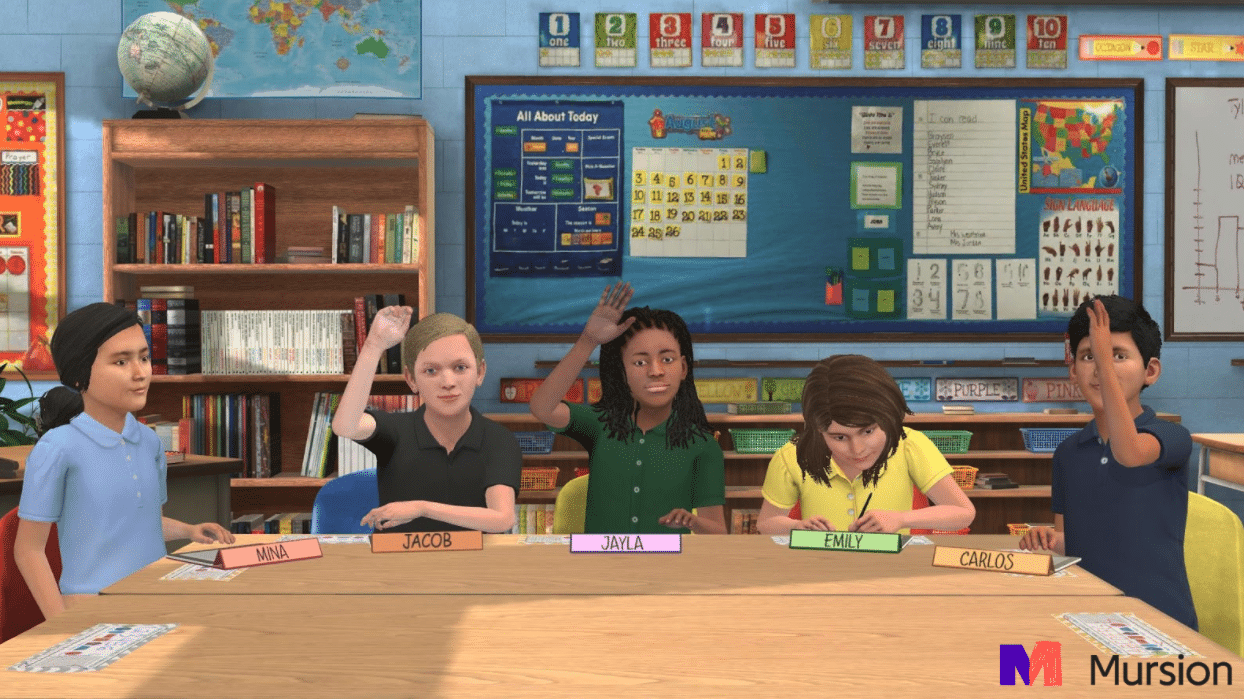 Would teachers find professional development via simulated classrooms useful? This was one of three questions that Toni M. Smith, principal researcher, and Rachel Garrett, senior researcher, from the American Institutes for Research (AIR), explored in the Simulated Instruction in Mathematics Professional Development (SIM PD) Study. The following are excerpts from a summary of their research findings and from what they shared at a May 14, 2020 online event hosted by Mursion, whose virtual reality learning platform was used in the study.
Would teachers find professional development via simulated classrooms useful? This was one of three questions that Toni M. Smith, principal researcher, and Rachel Garrett, senior researcher, from the American Institutes for Research (AIR), explored in the Simulated Instruction in Mathematics Professional Development (SIM PD) Study. The following are excerpts from a summary of their research findings and from what they shared at a May 14, 2020 online event hosted by Mursion, whose virtual reality learning platform was used in the study.
Funded by the Charles and Lynn Schusterman Family Foundation, SIM PD is a pilot of an exciting, new PD program being conducted by AIR. SIM PD offers opportunities for teachers in grades 4–7 to (a) learn about questioning strategies and facilitation of student discourse to promote engagement and understanding of math concepts and (b) practice implementing those approaches using a mixed-reality classroom.
They randomly assigned 16 partnering schools to either participate in SIM PD or continue with business-as-usual professional learning during the 2018-19 school year. They collected documentation of SIM PD activities during implementation and video-based observations of math lessons from both groups of teachers.
26 May2020
By Jane E. West
This blog post is written by AACTE consultant Jane West and is intended to provide updated information. The views expressed in this post do not necessarily reflect the views of AACTE.
How Will the Senate Respond to the House Passed $3 Trillion HEROES Act?
Last week the House passed its follow up to the $2 trillion CARES Act by adopting the HEROES Act— the next COVID-19 relief bill. The Senate does not appear to be in a hurry to act and has clearly articulated different priorities from those in the HEROES Act.
Educators and their congressional allies are weighing in for a strong infusion of cash for education in the next bill. In the House, Reps. Tlaib (D-MI), Hayes (D-CT) and Pressley (D-MA) are circulating a letter to their colleagues that requests $305 billion be targeted to K-12 education in the next COVID-19 bill. In comparison, the HEROES Act targets $58 billion to K-12 education. Many education organizations are supporting their request, including the National Education Association, American Federation of Teachers, and AASA: The School Superintendents Association.
On the higher education side, almost 80 education organizations have requested that the maximum for the Pell Grant be doubled, anticipating that students will be facing unprecedented struggles when starting the new academic year and beyond.
21 May2020
AACTE Responds to COVID-19
By David Slykhuis, Liz Kolb, Lisa Dieker, Jon Clausen, Michael McVey and Robert Moody
This past March, face-to-face instruction was canceled as universities began to implement emergency procedures for remote teaching due to COVID-19. In response, AACTE’s Committee on Innovation and Technology (ITC) presented a webinar with guidelines for emergency remote teaching. Constituents can view that webinar and access additional resources.
The purpose of this blog post is to revisit the webinar guidelines with suggestions that can be incorporated into planning for 2020-21 blended or online instructional implementation plans:
Needs Assessment
Survey faculty and students to identify digital inequities and access needs. Develop easy to use support system for devices, reliable Internet access, and technical support.
Use Your Current Tools
If face-to-face instruction is not an option, now is not the time to revamp the current learning systems. Universities should encourage faculty to use the same tools (e.g., your Learning Management System) prior to and during COVID-19. Encourage instructors not to overwhelm students with too many new tools. Select a few versatile tools (e.g., Google Suite) and encourage innovative integration throughout a course or program.
21 May2020
By Jacqueline E. King, Ph.D.
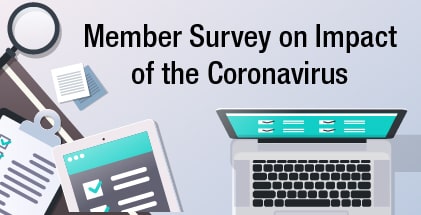 AACTE conducted a survey in April to better understand and assist members as they respond to the coronavirus pandemic. The survey yielded valuable insights about how the pandemic is affecting educator preparation now and the concerns that leaders anticipate as they look ahead to the 2020-21 academic year.
AACTE conducted a survey in April to better understand and assist members as they respond to the coronavirus pandemic. The survey yielded valuable insights about how the pandemic is affecting educator preparation now and the concerns that leaders anticipate as they look ahead to the 2020-21 academic year.
On May 27 from 4:00 to 5:00 p.m. ET, AACTE is hosting a webinar on the survey results. During this session, you will be able to
- review the survey results
- benchmark your experience against that of your colleagues
- discuss the challenges you are facing—and how you are overcoming them—with your colleagues
21 May2020
By Deborah Koolbeck
The U.S. Department of Education has released a call for peer reviewers for the Office of Elementary and Secondary Education, Effective Educator Development (EED) Division for upcoming Fiscal Year 2020 grant cycles. The following programs grant competitions are seeking reviewers:
- Teacher Quality Partnership Grant Program (TQP)
- Supporting Effective Educator Development (SEED)
- Teacher and School Leader Incentive Program (TSL)
The Department is looking for reviewers from various professions and background, preferably with education background and experience in various areas including (but not limited to) PK-12 teaching, preparing teachers, teacher residency programs, social and emotional learning, and preparing STEM teachers. Please see the Department’s 2020 Call for Peer Reviewers for all areas of experience and other requirements including availability, tools, and expected quality of review.


 As every educator in the country can attest, effectively leveraging technology in our classrooms, both in the virtual and brick and mortar environment, is paramount. To support our members, earlier this spring AACTE joined more than 70 education organizations in the
As every educator in the country can attest, effectively leveraging technology in our classrooms, both in the virtual and brick and mortar environment, is paramount. To support our members, earlier this spring AACTE joined more than 70 education organizations in the 

 AACTE congratulates 2020 National Teacher of the Year
AACTE congratulates 2020 National Teacher of the Year  As part of its continued efforts to inform members about the latest developments regarding educator preparation programs (EPPs) in light of COVID-19, AACTE has updated its
As part of its continued efforts to inform members about the latest developments regarding educator preparation programs (EPPs) in light of COVID-19, AACTE has updated its  Would teachers find professional development via simulated classrooms useful? This was one of three questions that Toni M. Smith, principal researcher, and Rachel Garrett, senior researcher, from the American Institutes for Research (AIR), explored in the Simulated Instruction in Mathematics Professional Development (SIM PD) Study. The following are excerpts from a summary of their research findings and from what they shared at a May 14, 2020 online event hosted by
Would teachers find professional development via simulated classrooms useful? This was one of three questions that Toni M. Smith, principal researcher, and Rachel Garrett, senior researcher, from the American Institutes for Research (AIR), explored in the Simulated Instruction in Mathematics Professional Development (SIM PD) Study. The following are excerpts from a summary of their research findings and from what they shared at a May 14, 2020 online event hosted by  AACTE conducted a
AACTE conducted a